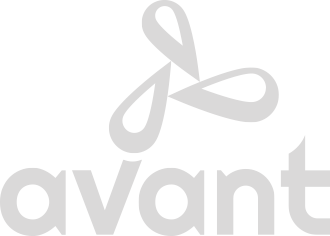As the NHL Draft approaches, I found myself in an intriguing conversation with a hockey advisor about what differentiates true, lasting hockey talent from the flash in the pan variety. Steve has been a hockey advisor to many junior hockey athletes and former AAA Tier 1 coach. In my opinion Steve is one of the top when it comes to comprehensive development that reaches beyond the sport. The hockey mom in me combined with my own experience as an athlete and psychologist couldn’t help but apply some of Steve’s insights with my own when it comes to what differentiates talent on the hockey rink and how similar it is to what differentiates talent in the business world.
We both agree without a doubt that there are some basics to entry. Top performers are self-starters with some degree of smarts, drive and skill, along with the luck of being at the right place at the right time. That’s the starting point.
But what’s the hat trick that differentiates true, lasting hockey (and business) excellence? In Steve’s words:
- You must be coachable.
- You must put the team first.
- You must be willing to play any position.
Coachability
Steve told me he can tell kids how to score on goalies from a skill perspective, and the vast majority of the time if they follow his guidance they will score. He said kids with a shred of talent and determination will be ok, but if they are willing to listen and learn from their coach, then the sky is the limit. If they want to do it their way, and only their way, they will fail. I call this mental agility, the willingness to hear feedback and adjust accordingly. It starts with self-awareness but extends much further. This is someone who is highly curious about self, others and the business. She is a proactive learner who is aware of her impact on others, seeking feedback and making personal changes to be more effective.
Team First
Putting team first takes selfless dedication. In Steve’s mind it’s a kid who understands that it’s not important “who” got the goal, but that “we” got the goal. In his mind you can’t have a selfish kid in a team sport, regardless of talent. Furthermore, the championship team will not necessarily have the best talent, but will be the best at working together. In the business world this expands beyond your immediate team or department, and extends to the greater good for the company. “We vs. me” may seem like lip service; employees understand it psychologically. However, when put to the test there is a natural, gravitational pull to “my team” rather than the business unit or enterprise. The differentiator for long-term success is the willingness to make sacrifice that creates pain for your team/function but that you know is what the business, division or enterprise needs to be successful as an entity.
Play Any Position
Being willing to play any position isn’t necessarily about being able to play every position on a team, but rather about taking the extra steps that set them apart. These kids train beyond the required time, they stick handle after practice is over to learn a new skill, and they take the time to understand every aspect of the game. Steve equated it to a successful restaurant manager who knows how to bus a table, wait a table, wash dishes, cook, and bartend; and will jump in to help in any one of those positions when necessary. In a business setting, broad experience allows a manager to have insight and coach effectively across multiple functions. It enables empathy and appreciation because the manager has some inkling as to what goes into the work product. It also means the manager likely knows “red flags,” signaling when to “zoom in” versus “zoom out.” Leaders who lack broad experience – which isn’t just about functional experience but is also about experience across different business conditions – will often take the same approach to solving problems, which takes you right back to the importance of mental agility.
So, what are some initial, practical steps you could take?
- Coachability: Establish a cadence for soliciting feedback to enhance your effectiveness – you don’t have to wait for your company to provide you with a process to do this. Make sure you start with people who are courageous and with whom you have strong relationships so the feedback is meaningful rather than only platitudes.
- Team First: Take the time to understand the priorities and obstacles of other departments, it will help you deliver better cross functionally.
- Play any Position: If moving to a new role is impossible - and there are many valid reasons why this might be so – then look for special projects. A special project that would give you exposure to a different side of the business or discipline.
There is no substitute for hard work and honing your craft (technical skill) on the way to a successful and satisfying career regardless of the arena (sports, business). When you consider the common differentiators for sports and business, they are attitudinal and intangible, however you know them when you see them. While seemingly nebulous, there are many ways you can gain mental agility, focus on greater good (we v. me) and broaden your exposure – you just have to be looking.
Stephen Androlewicz
Stephen Androlewicz is a Level 5 Coach at USA Hockey and former coach for AAA Tier 1. He has coached from youth to juniors in the United States and internationally, and has numerous athletes who have made national camp including 10 D1 hockey players and 2 drafted into NHL.

